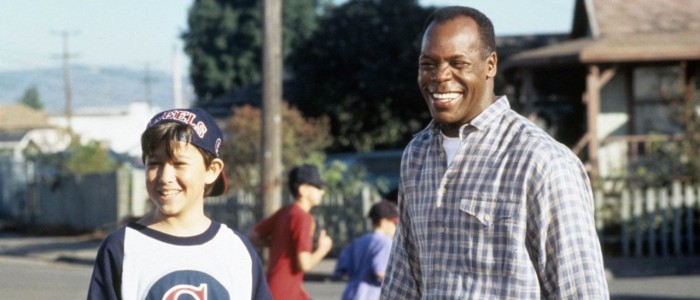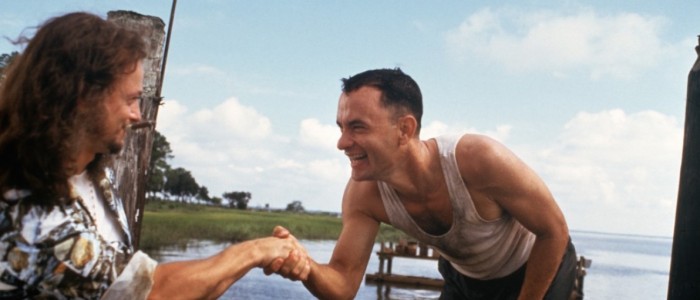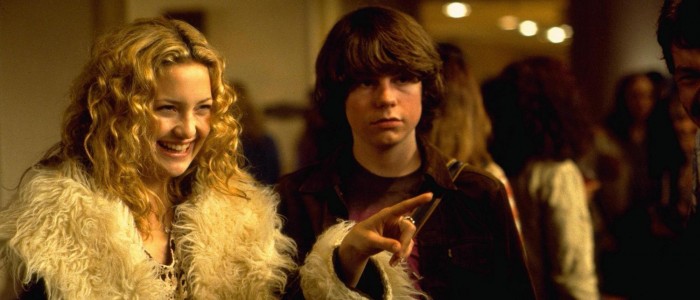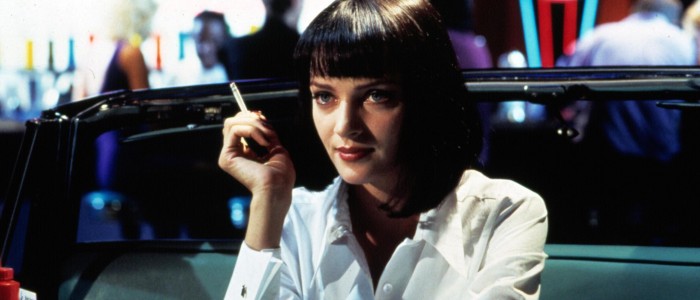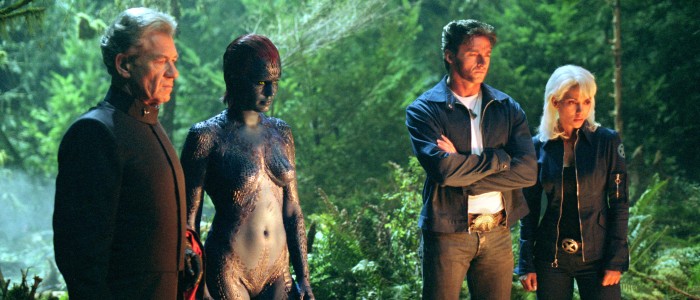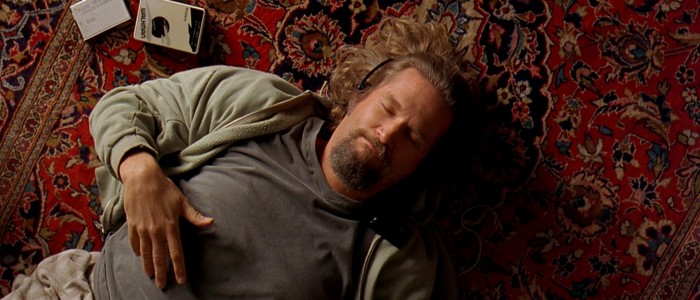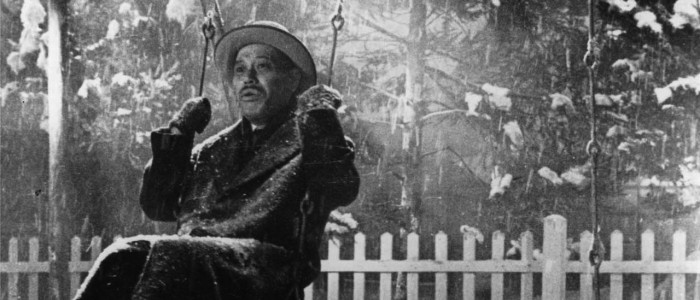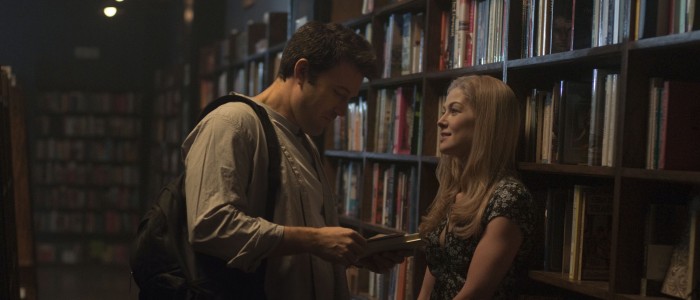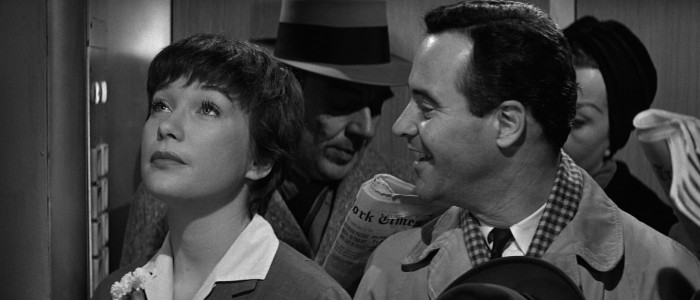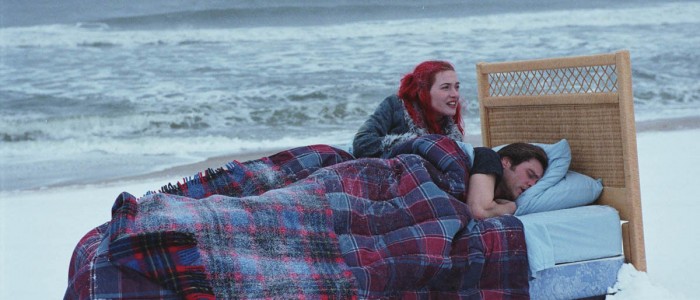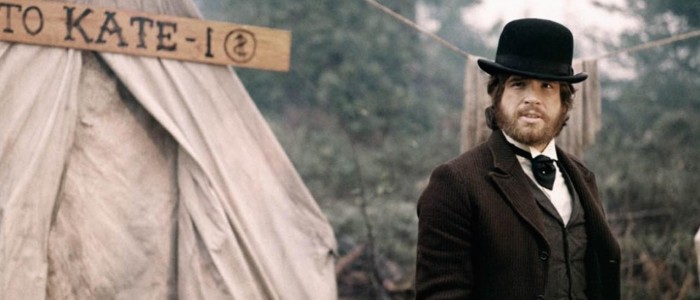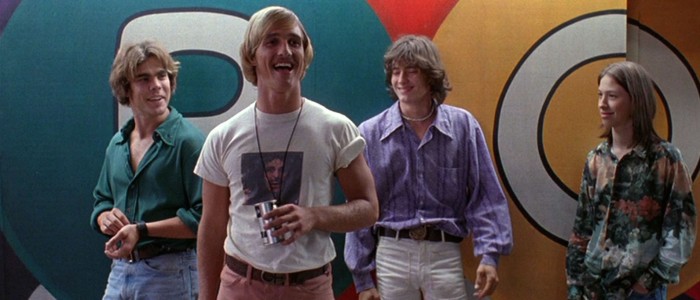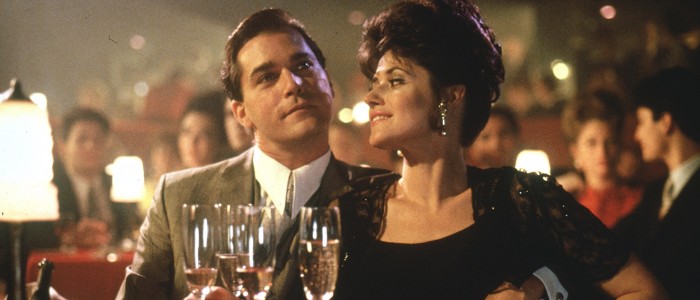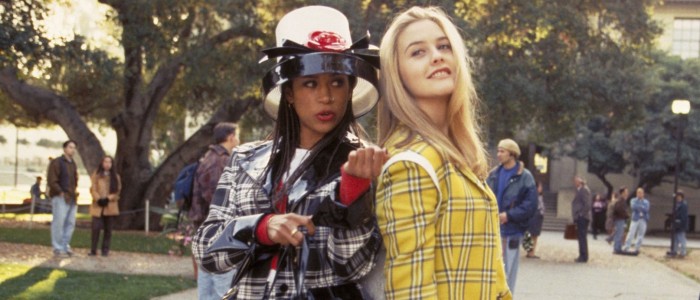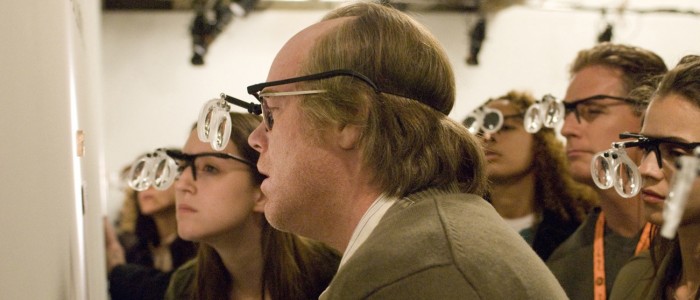Angie Han's Favorite Movies Of All Time
It only took four and a half years, but /Film has finally, graciously given me the opportunity to introduce myself. Hi, I'm Angie Han. I like movies, and I have for a while. Which movies I like the most changes from year to year, if not day to day (though it's admittedly been a while since my #1 changed), but these are some of my favorites at this very moment in time.
Before we delve into my current favorite movies, I thought I'd also look back at a few that were among my favorites at various point in my life. Such as...
1994: Angels in the Outfield
While there were plenty of films I enjoyed before 1994, Angels in the Outfield is the first film I remember singling out as my favorite. And that's only partly due to my childhood crush on Joseph Gordon-Levitt. Mostly, it was just the first movie that seemed to hit me in the exact right place at the exact right time, in a way that felt personal. It felt sad enough to feel real, sweet enough to feel safe, with a light spirituality that dovetailed nicely with my own newfound (and since abandoned) religiosity.
1998: Forrest Gump
I know, I know. But damn it, I loved it when I first saw it in 1998 (three years after it beat out Pulp Fiction for Best Picture, permanently earning the white-hot hatred of cinephiles everywhere). I knew plenty about American history at that point, having learned all about it in school, but Forrest Gump was a whirlwind tour of half a century of American pop culture, which I knew less about. Plus, I still stand by Tom Hanks' performance as the simple-minded hero, even if Hanks is never completely able to conceal his own intelligence.
2000: Almost Famous
No, it's not a rule that every writer at /Film is required to love Almost Famous. Yes, I'm one of the majority of writers at /Film who do. Like many people, I had spent most of my adolescence wanting and failing to be cool. Then here, finally, came a movie that preached the virtues of being uncool — of being too earnest, of caring too deeply, of trying too hard. I don't love it quite as much as I used to, maybe because I associate it so strongly with my teen years, but it'll always have a special place in my heart.
2001: Pulp Fiction
As with Forrest Gump, it took me a few years to get around to seeing Pulp Fiction. But when I did, I fell hard. I'd led a pretty sheltered life up to this point, pop culture-wise, in case you couldn't tell by my picks above), and Pulp Fiction felt like nothing I'd ever seen before, with its larger-than-life characters, crazy-cool dialogue, and mixed-up storylines. I can't credit any single picture with sparking my serious interest in cinema, but let's just say Pulp Fiction fell right around the turning point.
2003: X2
I didn't grow up watching Star Wars, or reading Spider-Man, or playing Dungeons & Dragons. The kind of pop culture obsession that so many of my colleagues (and so many of you) have lived and breathed their whole lives wasn't even on my radar until early college, when I was hit by the one-two punch of the X-Men movies and the Harry Potter books. X-Men I liked, but X2 I loved, and it sent me down a rabbit hole of geeky fandom from which I have never quite returned.
***
On the next page, without further ado, my 10 favorite movies.
10. The Big Lebowski
The first time I saw The Big Lebowski, I didn't care for it at all. The plot was complicated and hard to follow, the characters were weird and exasperating, and I just couldn't understand what the point of any of it was. But that is the point, as I realized when I revisited it years later. The Big Lebowski is the story of a guy (a Dude) who abides no matter what the world throws at him. And the world throws a lot at him — it might be a sad movie if it weren't such a funny one. The second to last scene sums up the movie perfectly: the Dude, covered in his friend's ashes, arguing with Walter before they decide, "F*** it, man. Let's go bowling."
9. Ikiru
Is there anything more horrifyingly tragic than the notion that you may have wasted your entire life? Based on Ikiru, no; also based on Ikiru, it's never too late to turn it around. You just have to make sure the cynicism of the world doesn't drag you down with it. This is a movie breaks me down into a teary mess — it is quite possibly the hardest I've ever cried in a theater — but it's ultimately an uplifting one, as he finds a renewed purpose in a modest quest. Takashi Shimura's lead performance is a wonder to behold, especially if you've seen him in other films like Seven Samurai — he is a man of endless versatility, apparently.
8. Gone Girl
This is the most recent film on my list by a comfortable margin, but I've rewatched it several times already and each time I find myself unable to shake it for days afterward. David Fincher isn't a director who's generally known for telling stories about women, but his collaboration with writer Gillian Flynn and star Rosamund Pike turned out to be one of the most scathing cinematic indictments in recent memory of the way our society treats women. It's also just f***ing funny, so long as you like your humor pitch-black.
7. The Apartment
One of my favorite genres not recognized by Netflix is comedies that'll make me cry. The Apartment perfectly fits the bill. It's a grown-up romance about people who've been ground down and spit out by the rat race, and who have finally, gradually come to realize what they do and don't deserve. The dialogue is sparkling and the chemistry between the leads is satisfying, all the more so because they don't feel like a Hollywood-perfect couple — they're just two lonely souls trying to find a bit of joy and decency in this world.
6. Eternal Sunshine of the Spotless Mind
There's another Charlie Kaufman movie coming higher on the list, so I debated whether I should include Eternal Sunshine. But to categorize it as a Kaufman film wouldn't be giving nearly enough credit to director Michel Gondry, whose whimsical and increasingly poignant visuals are half the magic. Eternal Sunshine also works as a weird litmus test about your outlook on life in general and love in particular. When I first saw it as a jaded college kid, I thought the ending was simply tragic. Rewatching it in my 30s, I see something courageous, even admirable, in their willingness to jump back in.
5. McCabe & Mrs. Miller
I'm a real sucker for stories that give the lie to stereotypical tales of heroism. (Though I have plenty of love for stereotypical tales of heroism as well, as evidenced by my obsession with the Marvel movies.) McCabe & Mrs. Miller deconstructs the Western's myths of rugged individualistic cowboys and beautiful hookers with hearts of gold, offering instead an elegy for the West that was and the West that only ever existed in our imaginations. At its heart are two deeply flawed people who are in over their heads. It's pessimistic but not cynical; what gives McCabe its poignancy is that there is plenty of beauty in this world. It's just not always where the Westerns have told you to look.
4. Dazed and Confused
I could've stocked half this list with Richard Linklater movies, but settled on Dazed and Confused because it's one I'm literally always in the mood to watch. Linklater offers an Altmanesque portrait of a specific time, place, and people, but it's really a film that'll resonate with anyone who's been through adolescence in America. Emphasis on through, because nostalgia is key to the Dazed and Confused experience. It's high school the way you remember it, or wish you did. Not as a perfectly happy place where nothing bad happened, but as an exciting crossroads with wonder and possibility in every direction.
3. Goodfellas
That iconic opening line — "As far back as I can remember, I always wanted to be a gangster" — landed like a punch to the jaw, and from that moment I was smitten. I actually came to Goodfellas pretty late in my movie-loving career, but watching it made me feel like an awestruck newbie again. Years of influence, homage, and parody haven't dulled its bracing energy or its razor-sharp wit. And just when the film doesn't seem like it can get any better, Martin Scorsese unspools that masterful third act, in which he breaks out every filmmaking tool at his disposal to put us in Henry's manic state of mind.
2. Clueless
Like its endlessly appealing heroine, played by Alicia Silverstone, Clueless is cute, bouncy, and easy to love. Also like its heroine, it's got hidden depths. The works of Jane Austen have been adapted time and time again for the screen, but rarely so well as in Clueless. Amy Heckerling nails Austen's wry social commentary, her keen understanding of human nature, her genuine affection for her characters, and (this is the part so many people seem to forget) her wicked sense of humor, all while adding a distinctive style that's all her own.
1. Synecdoche, New York
Synecdoche, New York is a movie about mortality, and everything that comes with it. That includes death, of course, but also life, which means love, hope, longing, regret, identity, art, communication, the inevitable passage of time, and the equally inevitable breakdown of the physical body. Writer-director Charlie Kaufman has a genius for crafting scenes that aren't "realistic" in the traditional sense, but — thanks in a huge part to the undeniable humanity of Philip Seymour Hoffman – nevertheless feel true in some other, more essential sense.
The plot of Synecdoche, New York, insofar as there is one, reads like the most depressing thing ever. A man loses his wife and child, and then his second wife and his second child, his father, his mother, his doppelgänger, and the love of his life. He spends his entire life trying to mount a masterpiece, which is only truly complete when he dies. But, well, who doesn't?
Synecdoche, New York isn't a happy film, exactly, but ultimately it's an affirming one. Because despite all the tragedies in it, the point is not that life is terrible. It's that we're all in this together.

